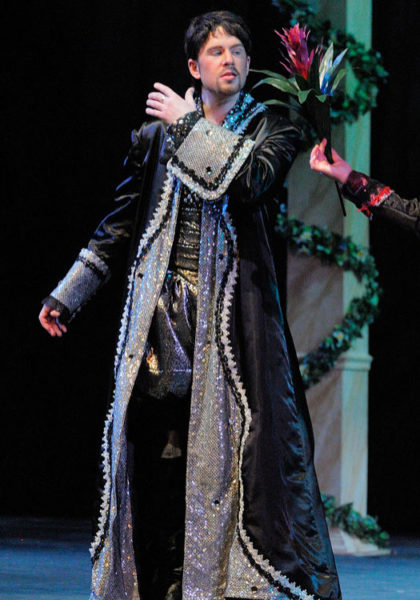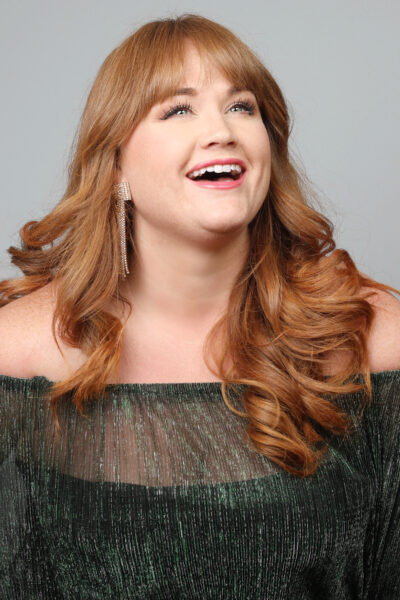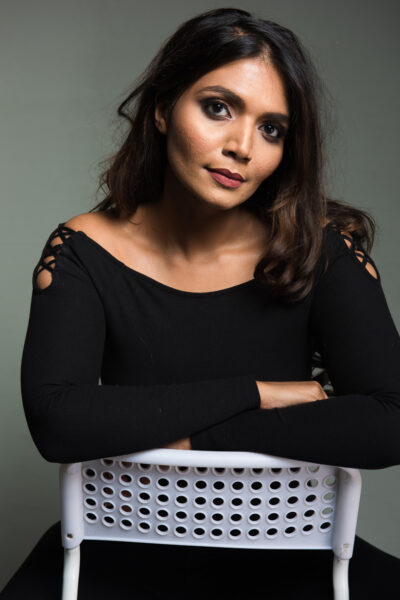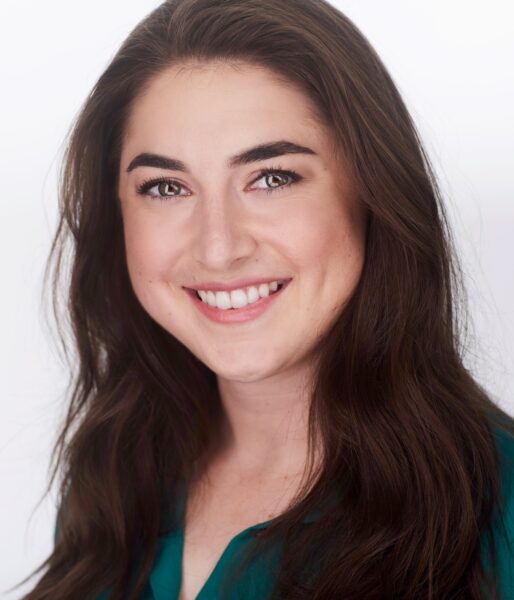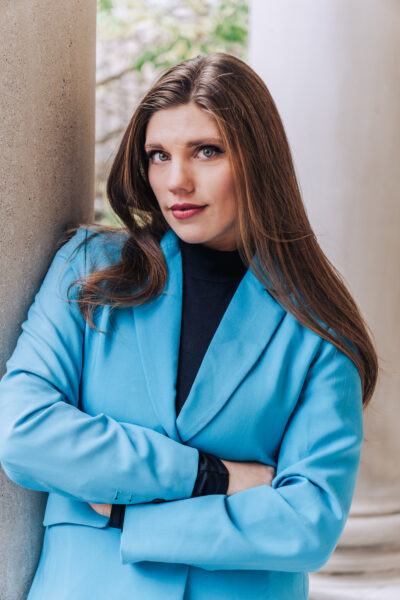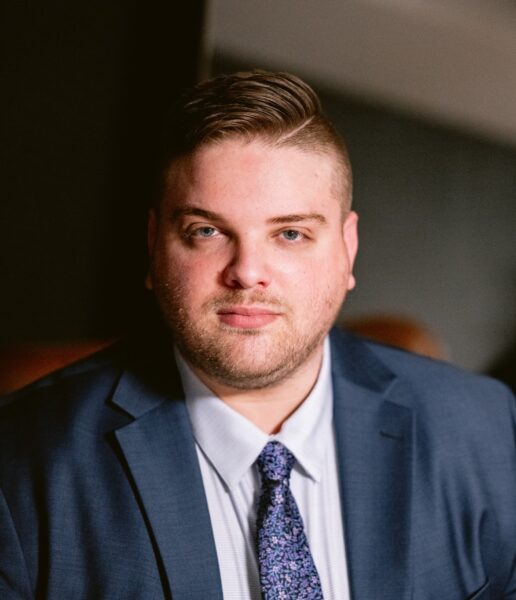Countertenor Daniel Moody is rapidly becoming a hot commodity across the country, in demand both as a concert soloist and in operatic roles. In his own way he always knew he had a talent to share, even before he had the vocabulary to put his dream into words.
His singing began not on a stage in his father’s apiary, advancing from hive to hive in a beekeeping suit. He gathered honey and pollen and performed any number of other tasks required to keep the beehives healthy. These skills taught him hard work — including from the bees themselves, who built the honeycombs and stored the larvae, pollen and honey separately. But the often repetitive work was not for everyone.
“To keep my mind busy, I would whistle, or sing while working in the bee yards” said Moody, who used to give community talks on honey bees as he sold honey for the family business.
The boy liked singing at the upper end of his register so much he wanted to stay there forever. “I was pretty insistent on being a boy soprano,” he said. “If puberty was going to change my voice, I wasn’t going to let it happen.”
Moody and his twin brother David were born fifth and sixth among 10 children. Their father, Mark Moody, worked as a civil engineer for the federal government, work that took the family to Germany for five years. But his father’s passion was beekeeping so he moved his family to a ghost town in South Dakota and began to work full-time on a 7,500 hive apiary, which his family helped run. They worked on the business for a half year, but then one summer, the area got hit with the worst drought in over 30 years. Thankfully, his father kept his government job and the family transferred to the Cincinnati area, exposing Daniel to a profusion of art and music. His voice changed but his tessitura remained high enough to sing up to a soprano’s range, which puzzled some.
“My family never discouraged me, but other people would ask, ‘Why is Daniel singing so high? Shouldn’t his voice have changed by now?”
A turning point came at age 16, when he performed at a church talent show. He accompanied himself on the piano to sing The Holy City, a song he selected from a favorite Charlotte Church album. He did not know a voice type existed called countertenor.
“I just knew I wanted to sing high,” he recalls, “and felt deep down it was my talent.”
The minister and his wife approached Moody after the show and told him he needed to sing lower because 16-year-old boys ought to sound like men when they sing.
“It was not the validation I was hoping for,” he said.
Other church members had a different reaction. Among them was the dentist’s wife who said, “You’ve got a talent and you really need to develop that. You should take voice lessons.”
With that push, Daniel found a voice teacher. He won 1st prize in the Cincinnati tri-state area high school competition, the Overture Awards, just nine months later. Scholarships to the Peabody Conservatory and the Yale School of Music followed.
He won awards in several competitions, among them the Metropolitan Opera’s National Council Auditions.
In the last few years, Moody has bookended the operatic and concert spectrum, singing both Monteverdi operas from the early baroque and contemporary music. At Tanglewood Music Festival in 2016, he sang the American premiere of a George Benjamin’s Dream of the Song. Most recently he gave the world premiere of Hannah Lash’s opera, Desire, a performance that won praise from the New York Times for his “powerful and lucid countertenor.”
His Carnegie Hall debut last season in Stern Auditorium included two appearances as a soloist in one week, singing Handel’s Messiah with the Oratorio Society of New York and Musica Sacra. Also in 2019, Moody debuted with San Francisco’s Philharmonia Baroque, singing arias by Handel and Estonian composer Arvo Pärt, as well as duets by Handel and Henry Purcell alongside Grammy-winning mezzo-soprano Anne Sofie von Otter.
In his limited downtime he enjoys reading, running, and hosting dinner parties in New York with his partner David Fung, an internationally acclaimed concert pianist.
He is in the midst of a busy season, debuting with Opera Lafayette (Nov. 21-23, Washington, D.C.); the Minnesota Orchestra (in Messiah Dec. 6-7, Minneapolis); performing with Apollo’s Fire in Bach’s Christmas Oratorio (Dec. 11-15, Cleveland), and again for a tour of Bach’s St. Matthew’s Passion in Ohio and Michigan (April 1-5, 2020).
A particularly rewarding experience came last year, when Moody returned to Cincinnati to perform Monteverdi’s The Coronation of Poppea, sharing the title role with countertenor Anthony Roth Costanzo. After the performance, a contingent from his boyhood church in Cincinnati greeted him with hugs.
“It is always nice to go back to my hometown of Cincinnati, and even more amazing to hear people cheering for me who have seen me grow from a teenager into an adult.” he said.
While this career has surpassed expectations, he remains mindful of the work needed to sustain it.
“It is not easy being a performer. In many ways, we are asked to create a painting like a Monet or a Picasso in a moment of live performance. Thankfully the composer has given us the sketch and colors, but even then it takes time to develop lasting artistry. What I hope is to give people a glimpse of the inspiration, this divine spark intrinsic in music. I hope people leave concerts saying, “Wow, I feel like I understand this composer now, or I’ve never heard it that way and totally loved it!”
These are also good times for Mark Moody, who now works with honey bees full time. His example both inspires and cautions his son.
“I think the biggest takeaway from my Dad’s experience, is dad was able to follow his passion. He worked more than anyone I knew and now he is so happy to have a bee business. I love saying, I make a living singing opera, because music is my passion.” And of course eating a lot of honey.
— Andrew Meacham
